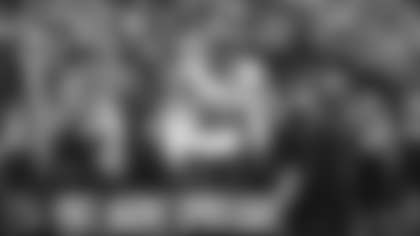"I've got to start learning my lesson for some of the plays that I'm selecting for us in the red zone."
Head coach Sean McVay said that just after the Rams defeated the Seahawks, 33-31, last Sunday. He was referring to Los Angeles' offense not coming away with points even though the unit had just received the ball at Seattle's 12-yard line following linebacker Cory Littleton's blocked punt.
On 2nd-and-goal from the two, McVay called a pass play. Quarterback Jared Goff's first read appeared covered, and then Goff tried to get a pass in to running back Todd Gurley on the left. The ball was tipped up and intercepted by defensive end Frank Clark, ending a prime scoring opportunity.
"That's something that I'll have to look at critically for myself and be better for our football team moving forward," McVay continued.
Since he began his tenure as Rams head coach, McVay has been highly critical of himself publicly — after wins as well as after losses. He's noted before that he does it because he asks the players to look at themselves critically, and therefore feels he must do the same.
And while players like quarterback Jared Goff agree that McVay is probably too hard on himself — "He's been great. We can be great, we can do a lot better as well," Goff said Wednesday — there is something to be said for at least the Rams' red-zone execution.
Los Angeles is currently No. 3 in points per game (34.6), behind New Orleans (36.0) and Kansas City (35.0). However, the Rams rank No. 12 in red zone scoring (60 percent). Of the 25 possessions that have finished within the opponent's 20-yard line, L.A. has scored 15 touchdowns and seven field goals. The club has failed to score three times — one missed field goal, and two interceptions.
So, yes, there is certainly room for improvement in that area. On Wednesday, McVay explained just why he was so critical of his red-zone play calling from the victory over the Seahawks.
Ahead of Sunday's Los Angeles Rams vs. Denver Broncos Week 16 matchup, take a look back at photos of historical matchups between the two teams.
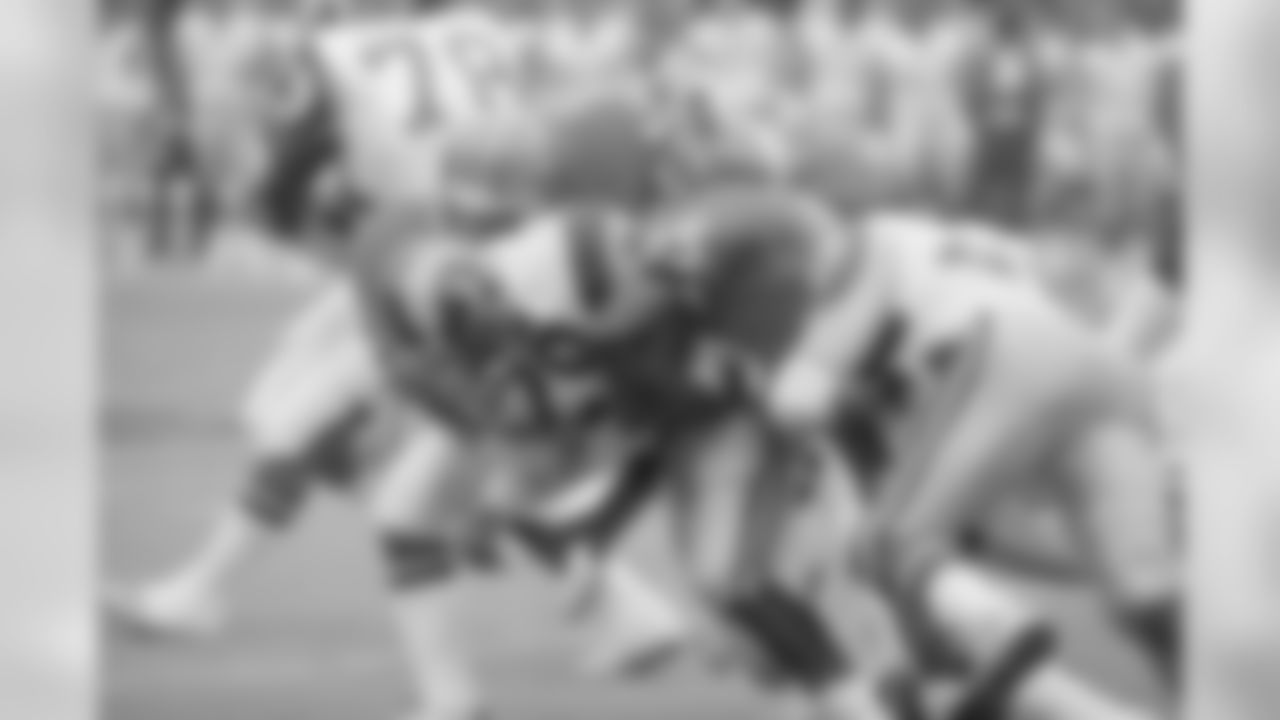
Los Angeles Rams running back Eric Dickerson, 29, is taken down by Denver Broncos Steve Wilson, 45, and an unidentified defender at left, during first quarter action in the American Bowl at London?s Wembley Stadium on Sunday, August 9, 1987 in London. Los Angeles? Mike Guman enters the play at right. Dickerson gained seven yards on the play. (AP Photo)
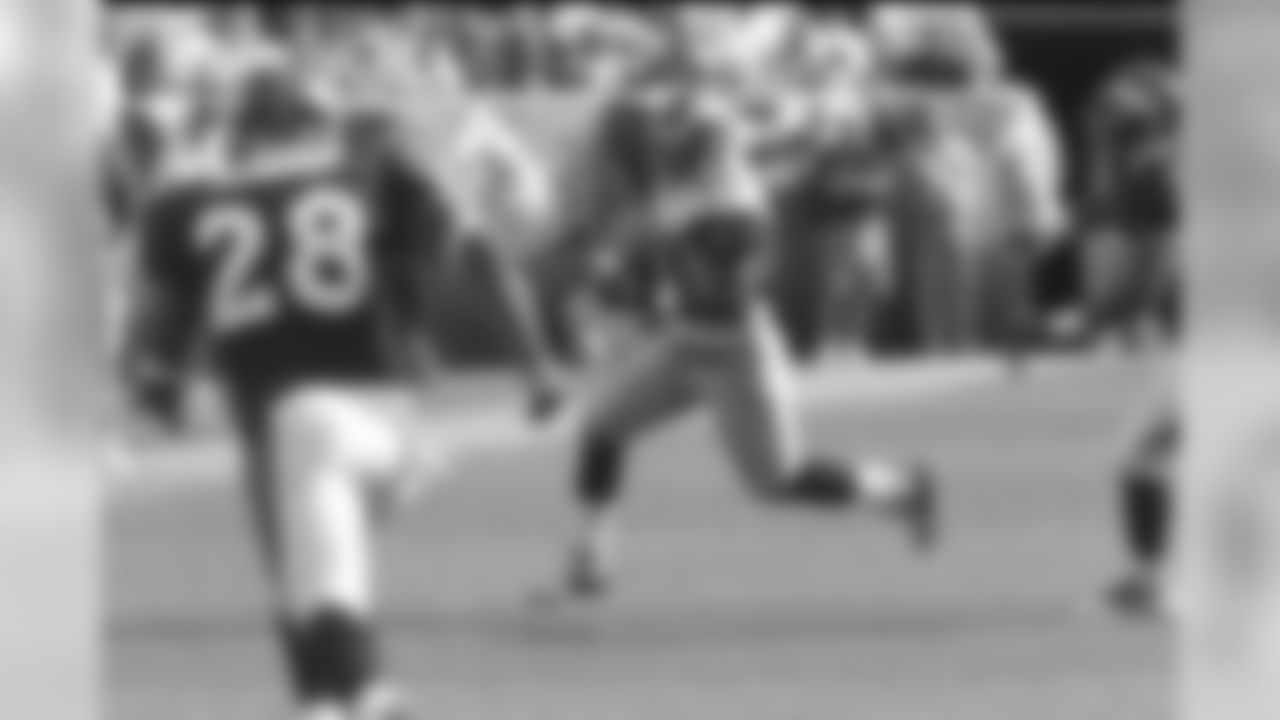
"St. Louis Rams Marshall Faulk runs for yardage against the Denver Broncos during a game on September 8 2002 in Denver. The Broncos won 23-16. (Photo by Bill Stover/St. Louis Rams)"
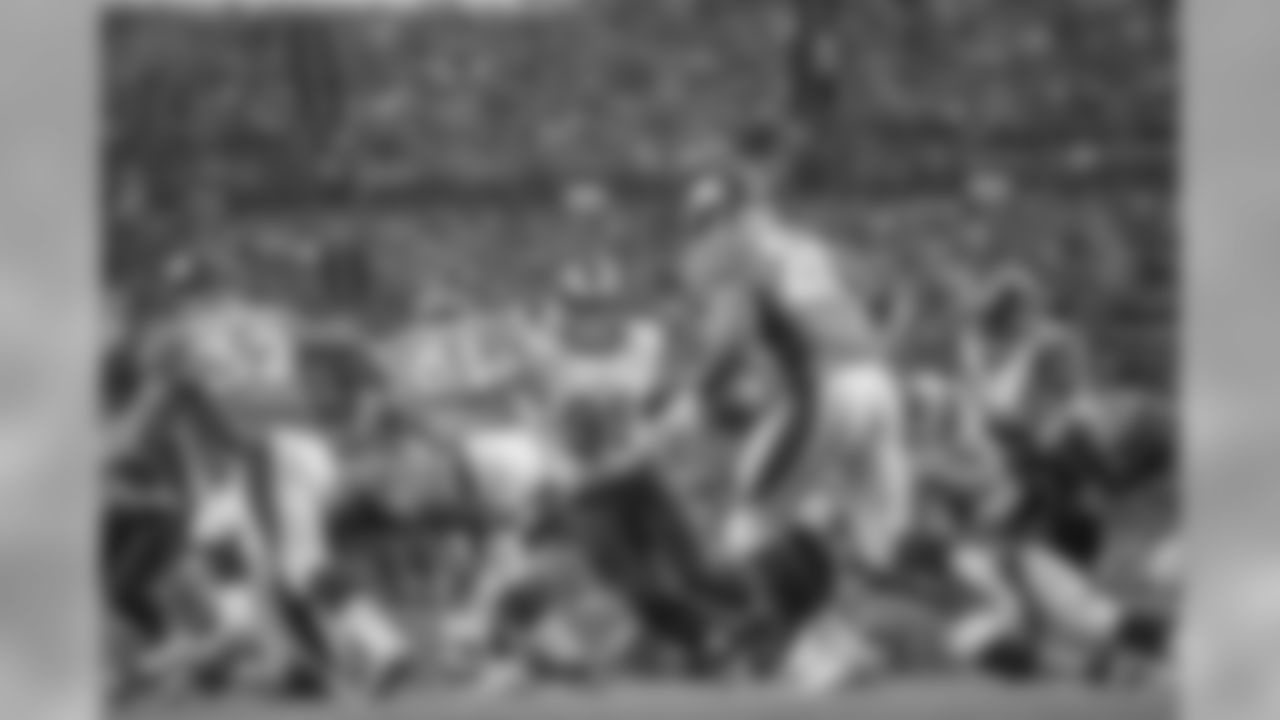
Defensive tackle (99) Aaron Donald of the Los Angeles Rams during the first half of the Rams 9-17 loss to the Denver Broncos in an NFL preseason game at Sports Authority Field at Mile High, Saturday, August 27, 2016, in Denver, CO. (Jeff Lewis/Rams)
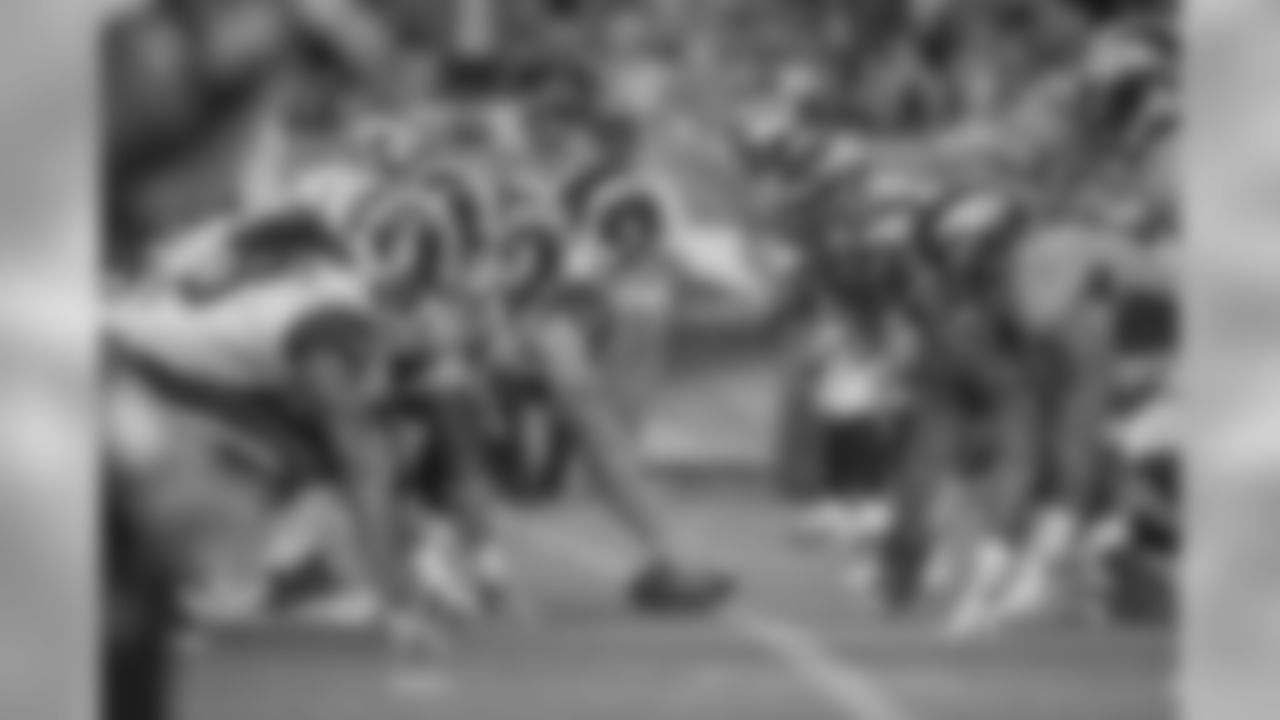
The Los Angeles Rams line up during the second half of the Rams 9-17 loss to the Denver Broncos in an NFL preseason game at Sports Authority Field at Mile High, Saturday, August 27, 2016, in Denver, CO. (Jeff Lewis/Rams)
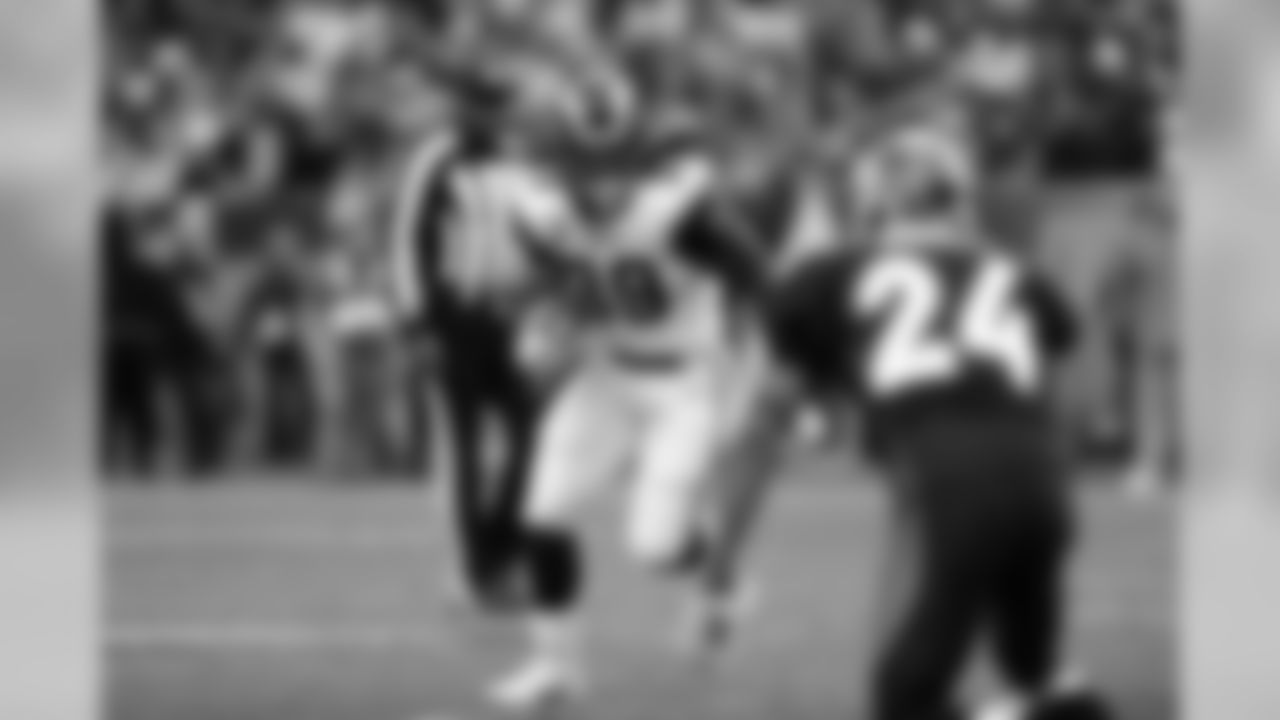
"DENVER - NOVEMBER 28: Steven Jackson #39 of the St. Louis Rams runs for yardage against the Denver Broncos at Invesco Field at Mile High on November 28, 2010 in Denver Colorado. The Rams won 36-33. (Photo by G. Newman Lowrance/St. Louis Rams)"
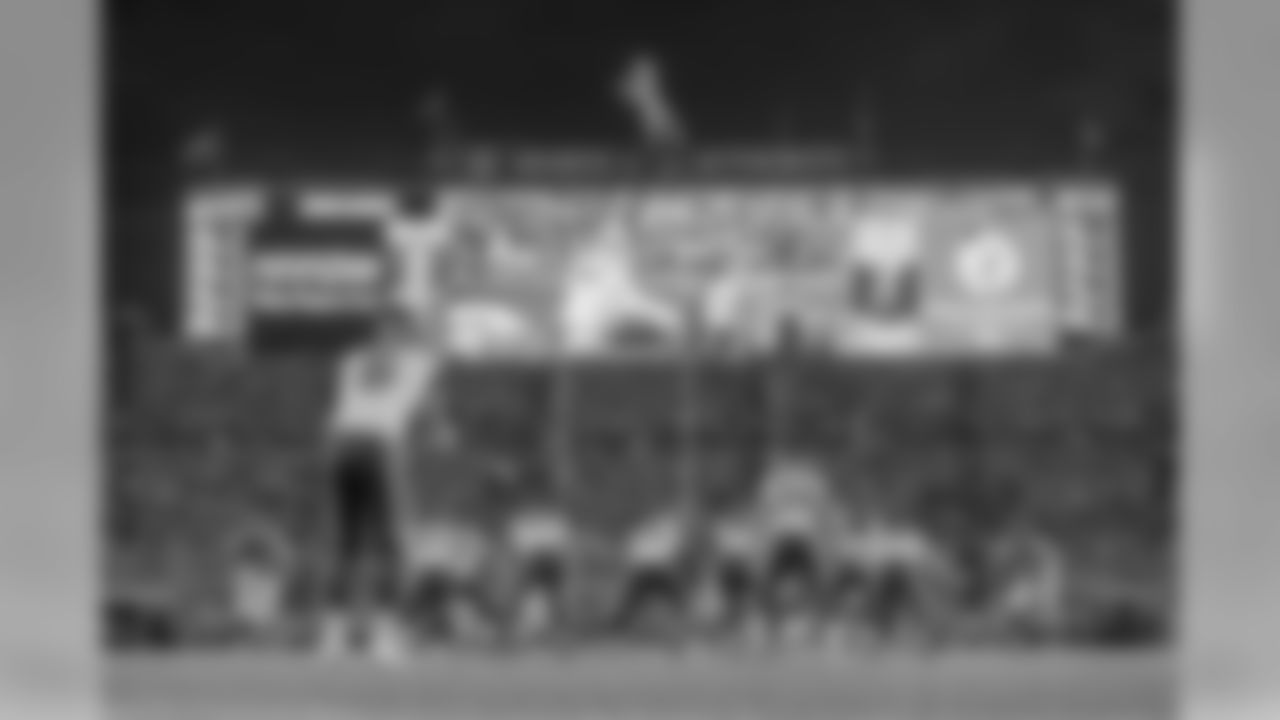
Punter (6) Johnny Hekker of the Los Angeles Rams punts during the first half of the Rams 9-17 loss to the Denver Broncos in an NFL preseason game at Sports Authority Field at Mile High, Saturday, August 27, 2016, in Denver, CO. (Jeff Lewis/Rams)
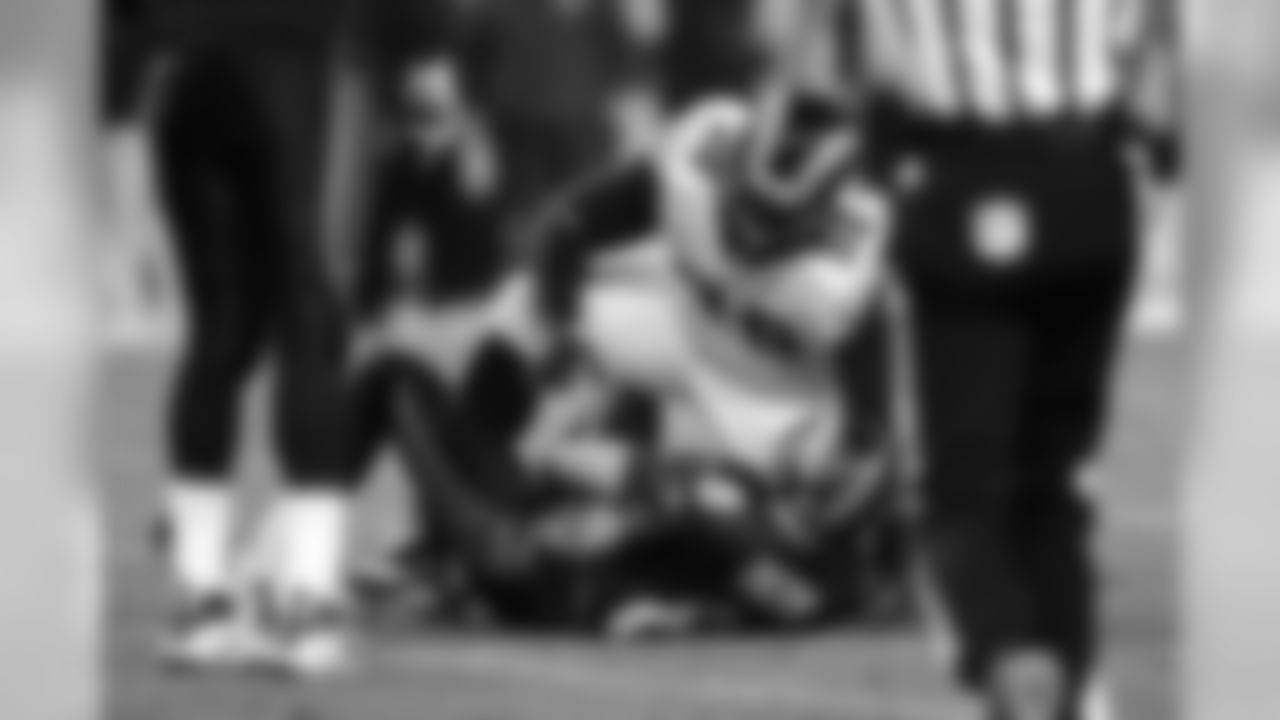
"DENVER - NOVEMBER 28: Fred Robbins #98 of the St. Louis Rams gets a sack on Kyle Orton #8 of the Denver Broncos at Invesco Field at Mile High on November 28, 2010 in Denver Colorado. The Rams won 36-33. (Photo by G. Newman Lowrance/St. Louis Rams)"
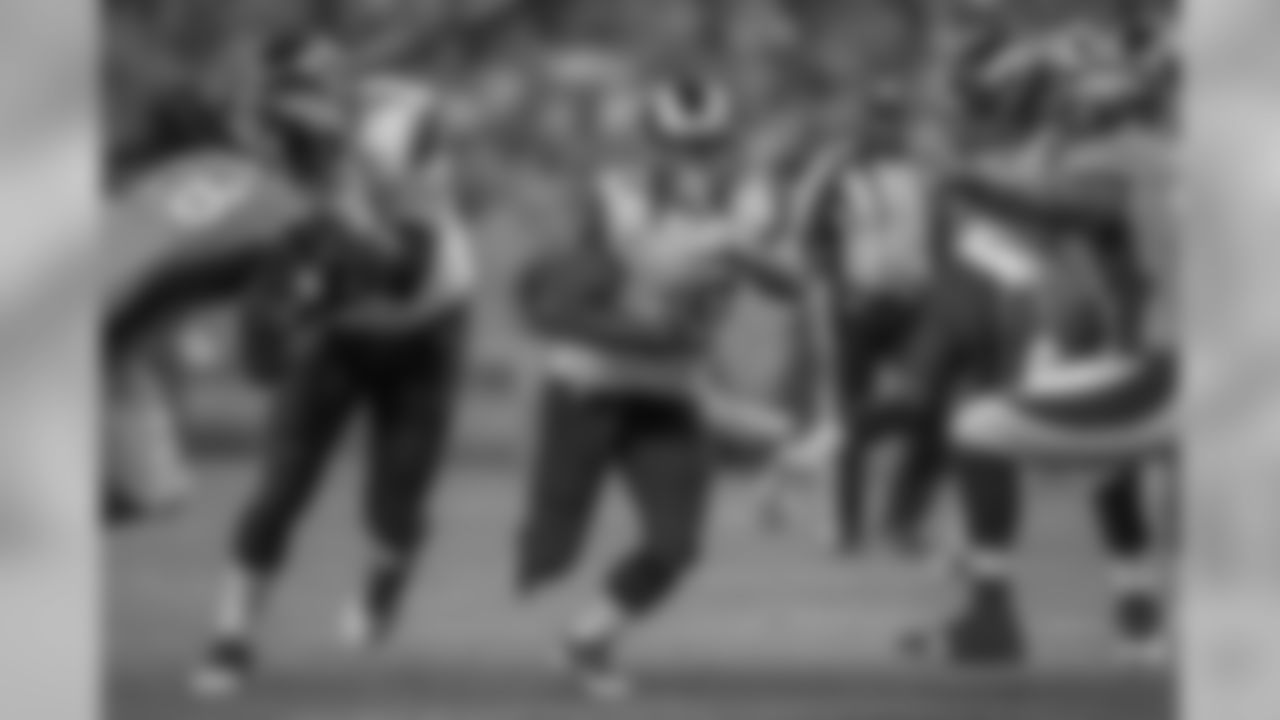
Running back (36) Aaron Green of the Los Angeles Rams is sacked during the second half of the Rams 9-17 loss to the Denver Broncos in an NFL preseason game at Sports Authority Field at Mile High, Saturday, August 27, 2016, in Denver, CO. (Jeff Lewis/Rams)
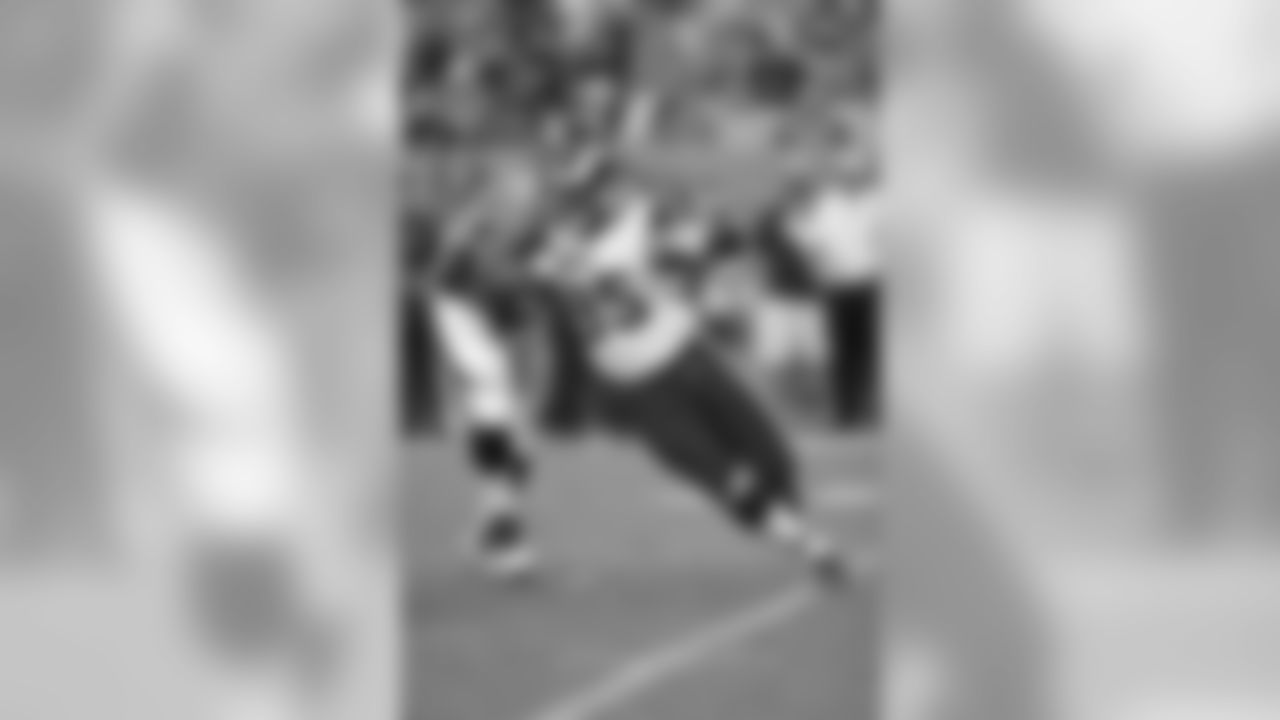
"St. Louis Rams William Hayes rushes in to apply pressure during an NFL preseason football game against the Denver Broncos on Saturday, Aug. 24, 2013 in Denver. The Broncos won, 27-26. (Photo by G. Newman Lowrance/St. Louis Rams)"
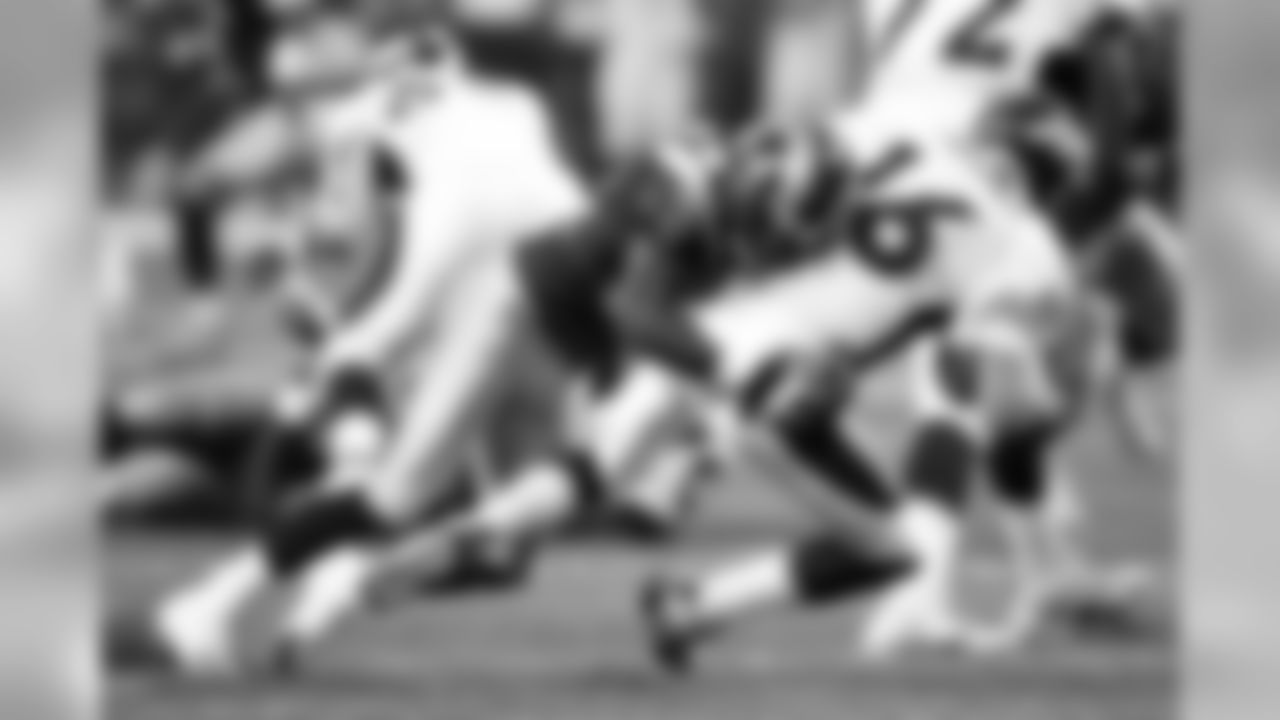
"ST. LOUIS, MO - SEPTEMBER 10: Fakhir Brown #34 of the St. Louis Rams makes a tackle against the Denver Broncos during the season opener at the Edward Jones Dome in St. Louis, Missouri on September 10, 2006. The Rams won 18-10. (Photo By Bill Stover/St. Louis Rams)"
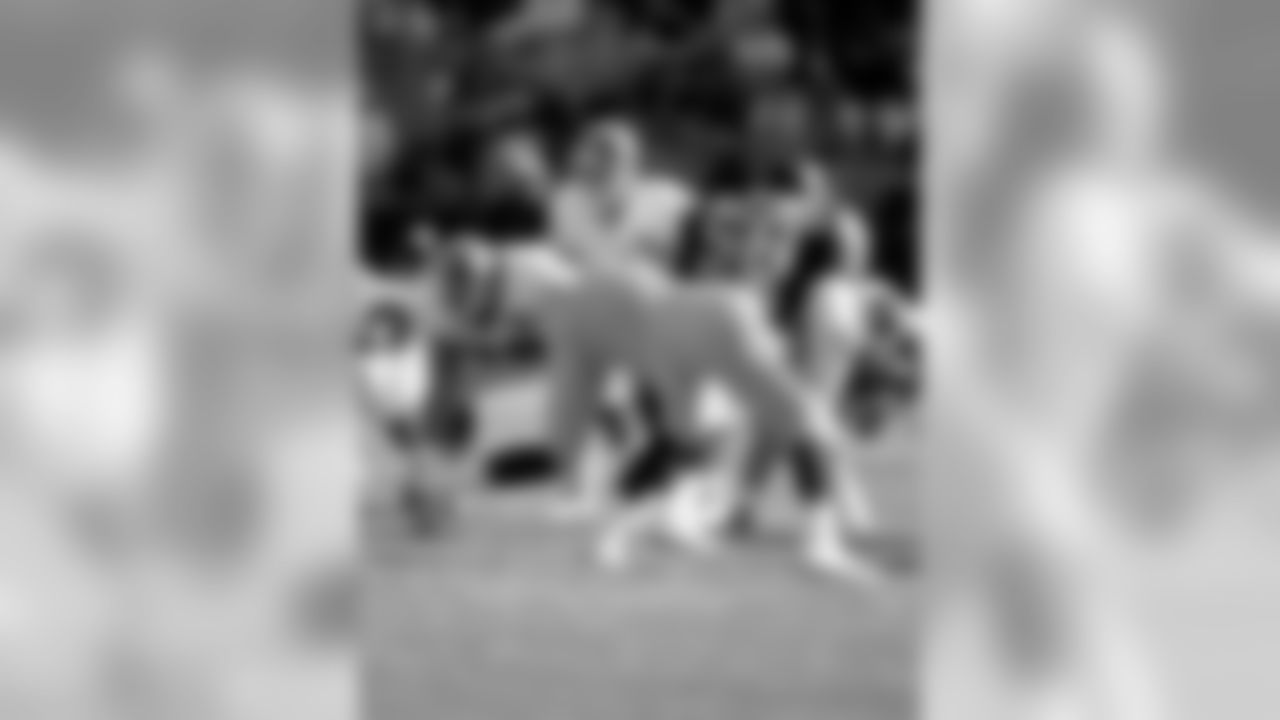
Denver Broncos quarterback John Elway (7) gets set for the snap of the ball during an NFL game against the Los Angeles Rams Nov. 6, 1994, in Anaheim, Calif. (NFL Photos via AP)
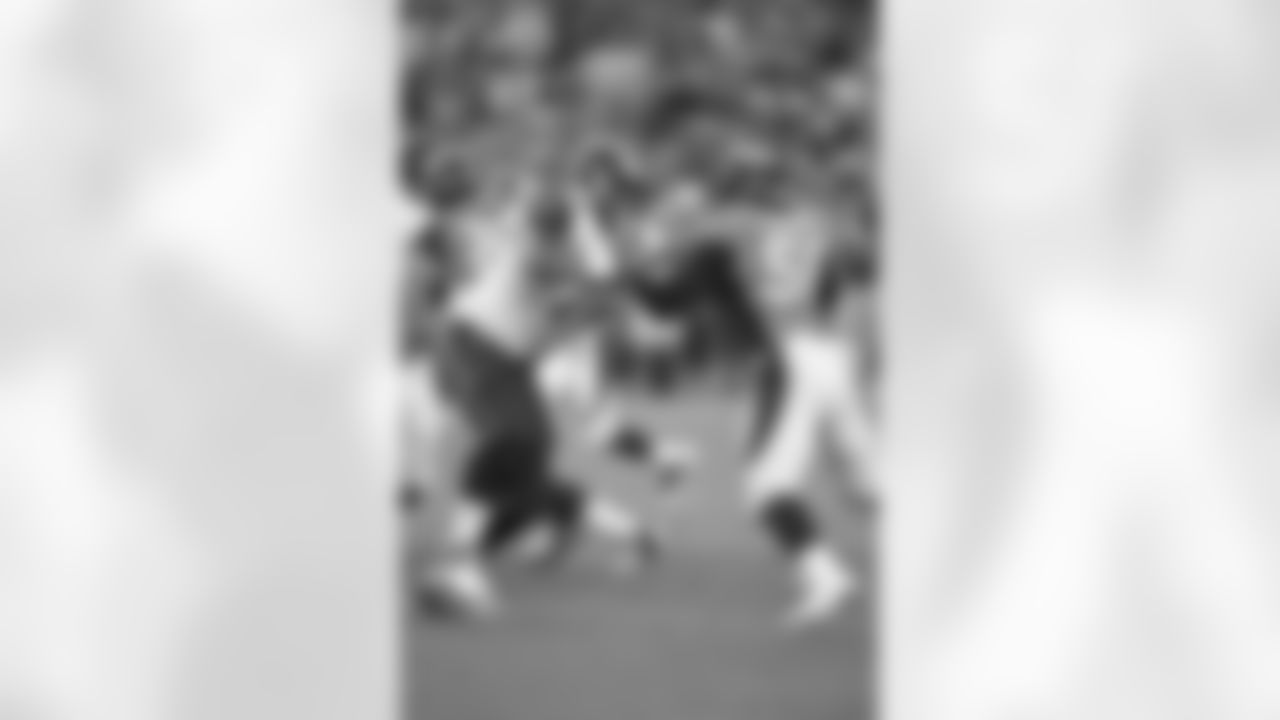
"St. Louis Rams offensive tackle Rodger Saffold blocks against Denver Broncos Von Miller during an NFL preseason football game on Saturday, Aug. 24, 2013 in Denver. The Broncos won, 27-26. (Photo by G. Newman Lowrance/St. Louis Rams)"
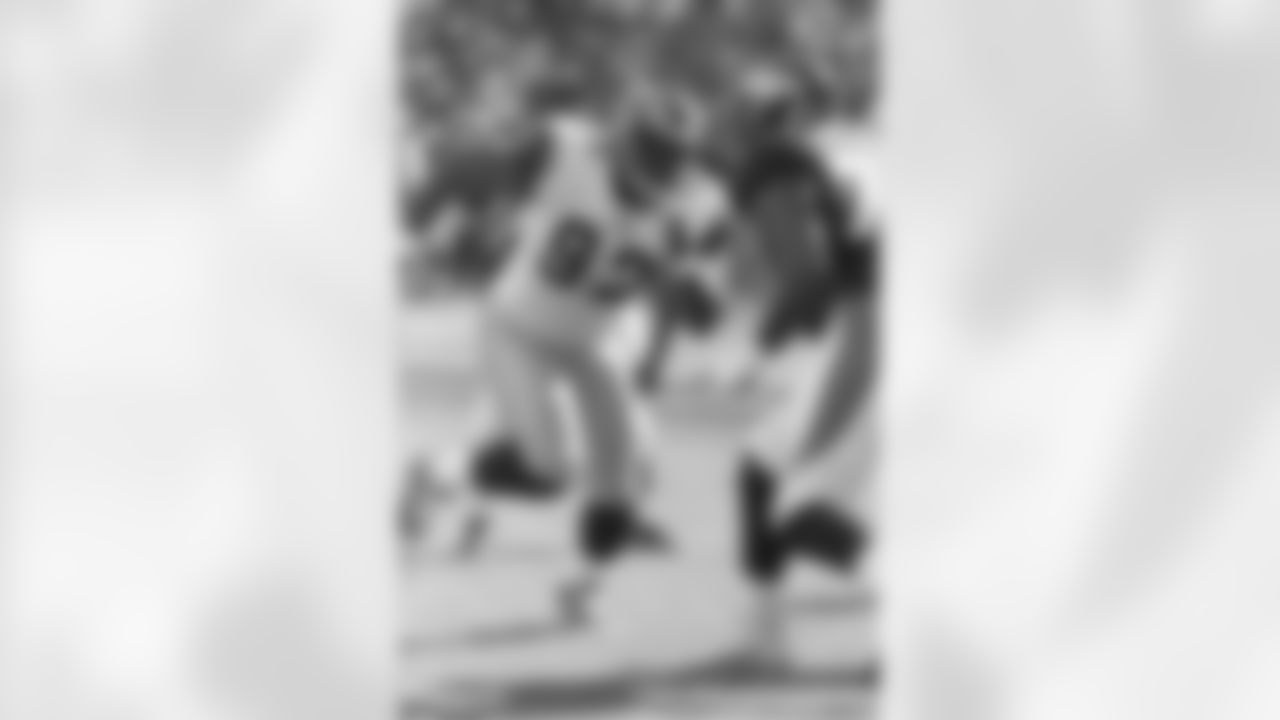
"St. Louis Rams Damione Lewis rushes in against the Denver Broncos during a game on September 8 2002 in Denver. The Broncos won 23-16. (Photo by Bill Stover/St. Louis Rams)"
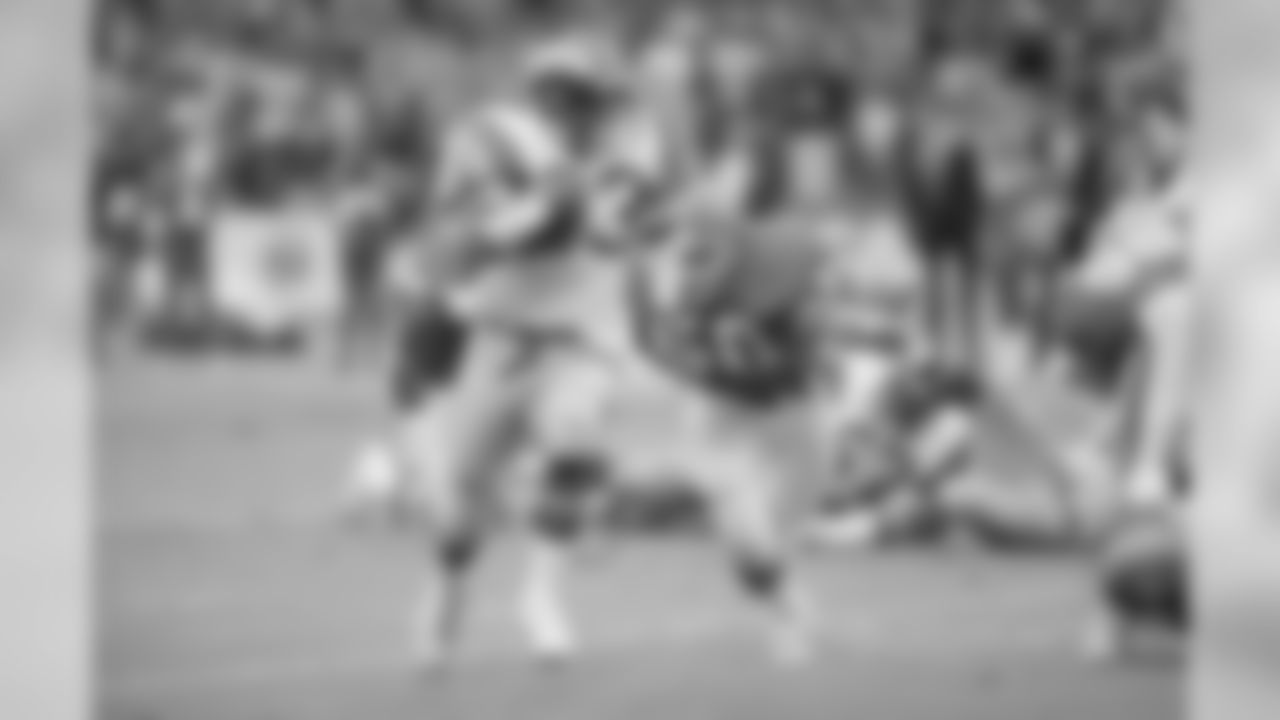
Los Angeles Rams running back Charles White, left, runs towards his first of two touchdowns against the Denver Broncos during the third quarter of the American Bowl on Sunday, August 9, 1987 in London?s Wembley Stadium. The Rams won the game 28-27. (AP Photo/Ed Andrieski)
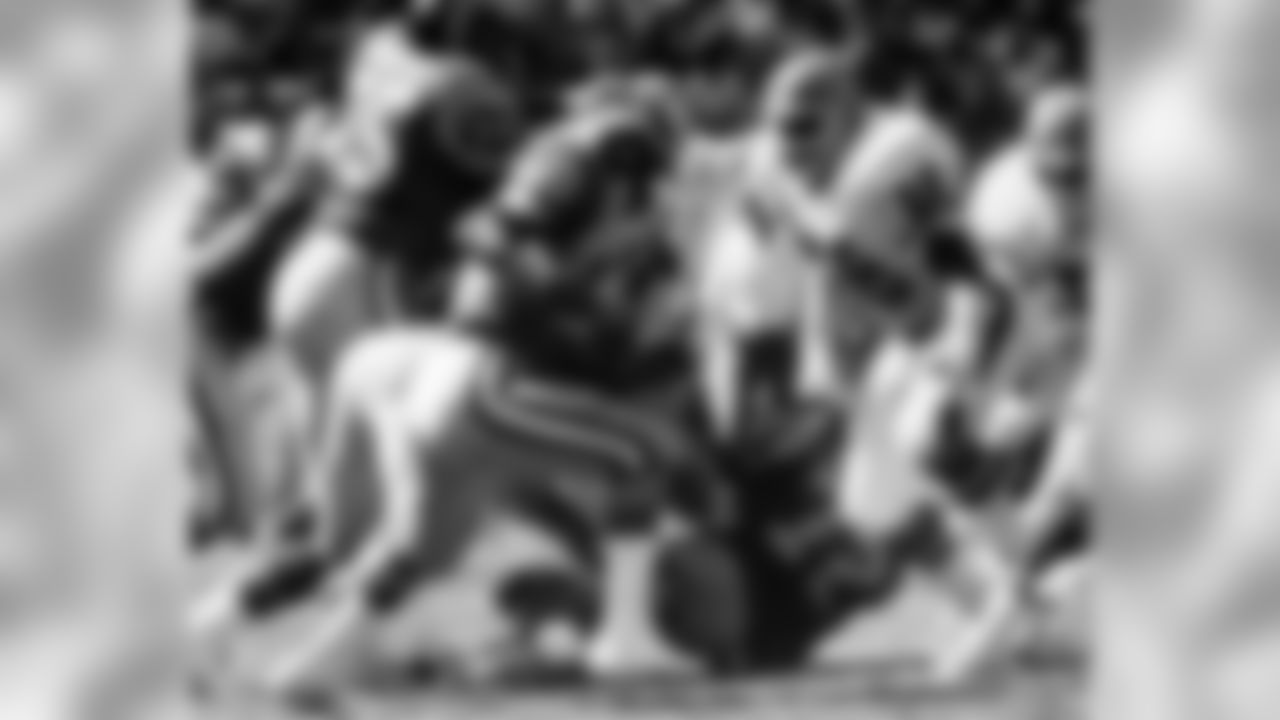
Denver Broncos nose tackle Rubin Carter (68) closes in on Los Angeles Rams running back Charles White (33) during an NFL game in Anaheim, Calif., Sept., 8, 1985. The Rams defeated the Broncos 20-16. (AP Photo/NFL Photos)
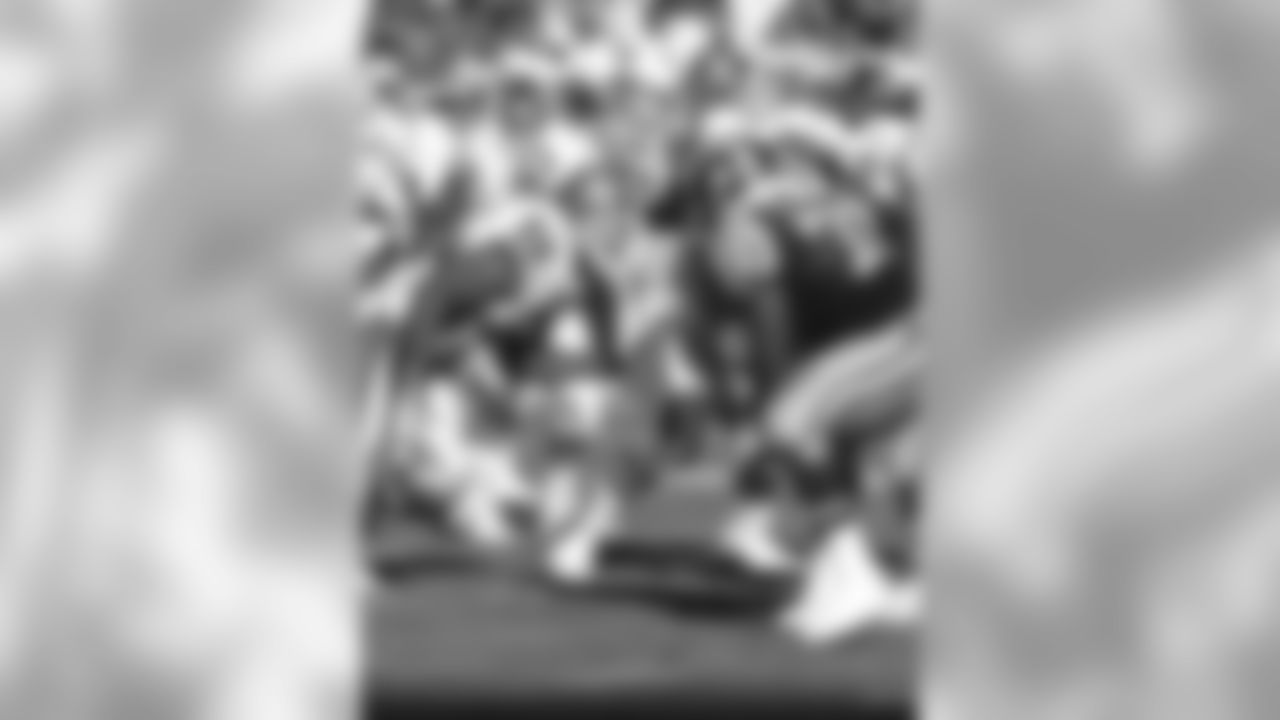
Denver Broncos defensive end Harald Hasselbach (96) is seen in action during an NFL game against the Los Angeles Rams Nov. 6, 1994, in Anaheim, Calif. (NFL Photos via AP)
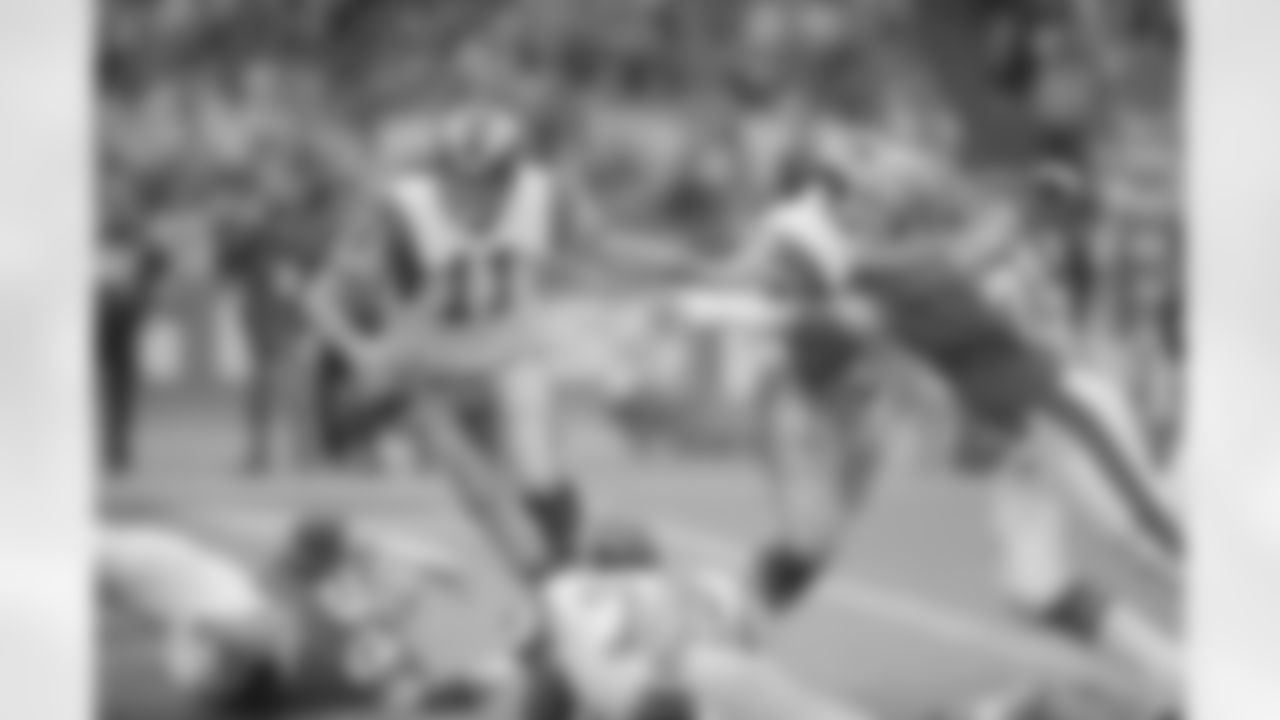
Los Angeles Rams quarterback Jim Everett scrambles away from Greg Kragen of the Denver Broncos for a seven-yard gain during the second quarter of the American Bowl on Sunday, August 9, 1987 in London?s Wembley Stadium.(AP Photo/Ed Andrieski)
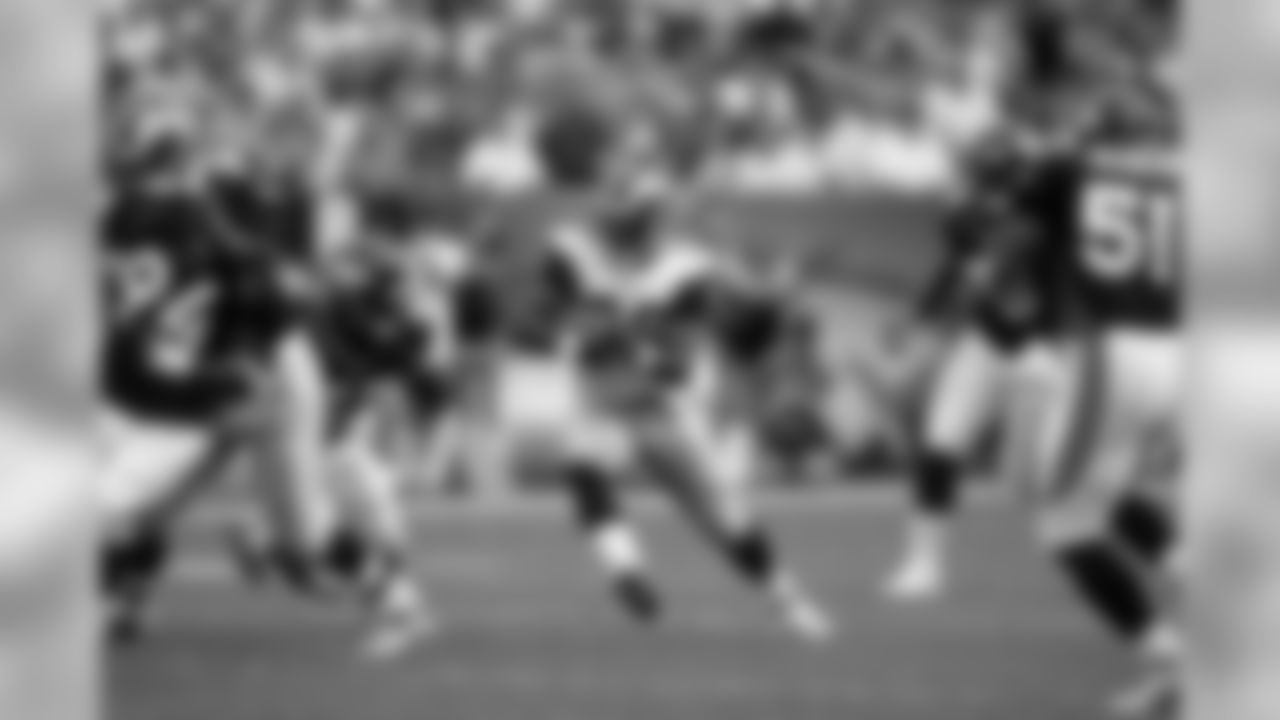
"DENVER, CO - SEPTEMBER 08: Marshall Faulk #28 of the St. Louis Rams runs for yardage against the Denver Broncos on September 8, 2002 at Invesco Field at Mile High in Denver, Colorado. The Broncos won 23-16. (G. Newman Lowrance Archive)"
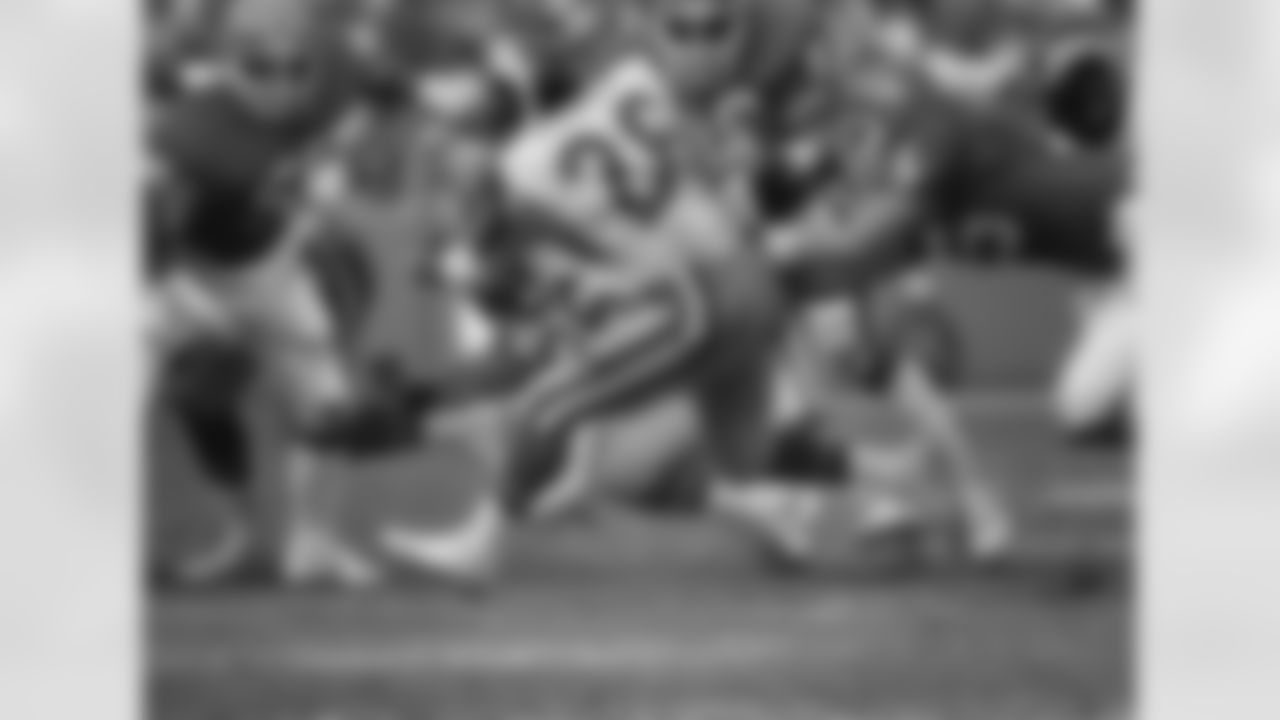
Denver Broncos linebackers Jim Ryan (50) and Larry Evans (56) and defensive end Rulon Jones (75) stop Los Angeles Rams running back Wendell Tyler (26) during an NFL game in Anaheim, Calif., Dec. 12, 1982. The Broncos defeated the Rams 27-24.(AP Photo/NFL Photos)
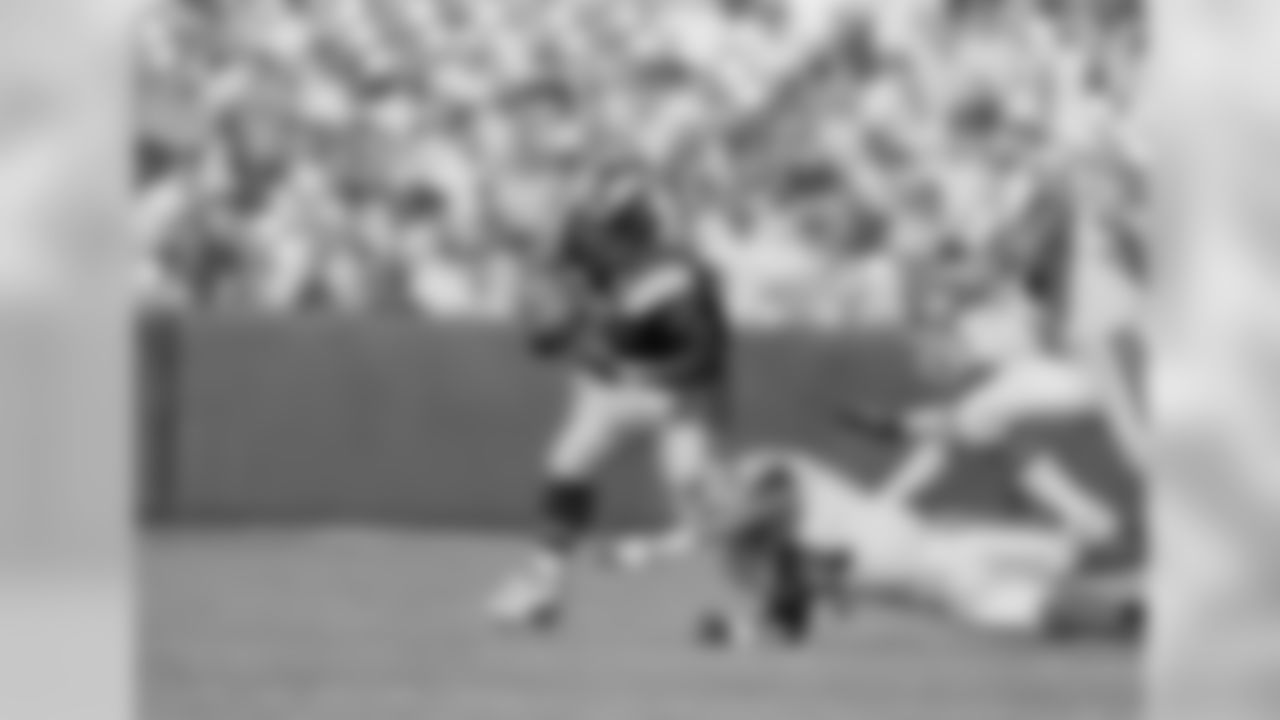
Los Angeles Rams running back Jerome Bettis (36) is followed by a tier of Denver Broncos players during first quarter action in Anaheim, Calif., Nov. 6, 1994. The Broncos are, from bottom, Steve Atwater (27), Dennis Smith (49) and Elijah Alexander (58). (AP Photo/Michael Caulfield)

Denver Broncos safety Steve Atwater (27) defensive back Darryl Hall (40) linebacker Keith Burns (56) and nose tackle Ted Washington (98) are seen in action during an NFL game against the Los Angeles Rams Nov. 6, 1994, in Anaheim, Calif. (NFL Photos via AP)
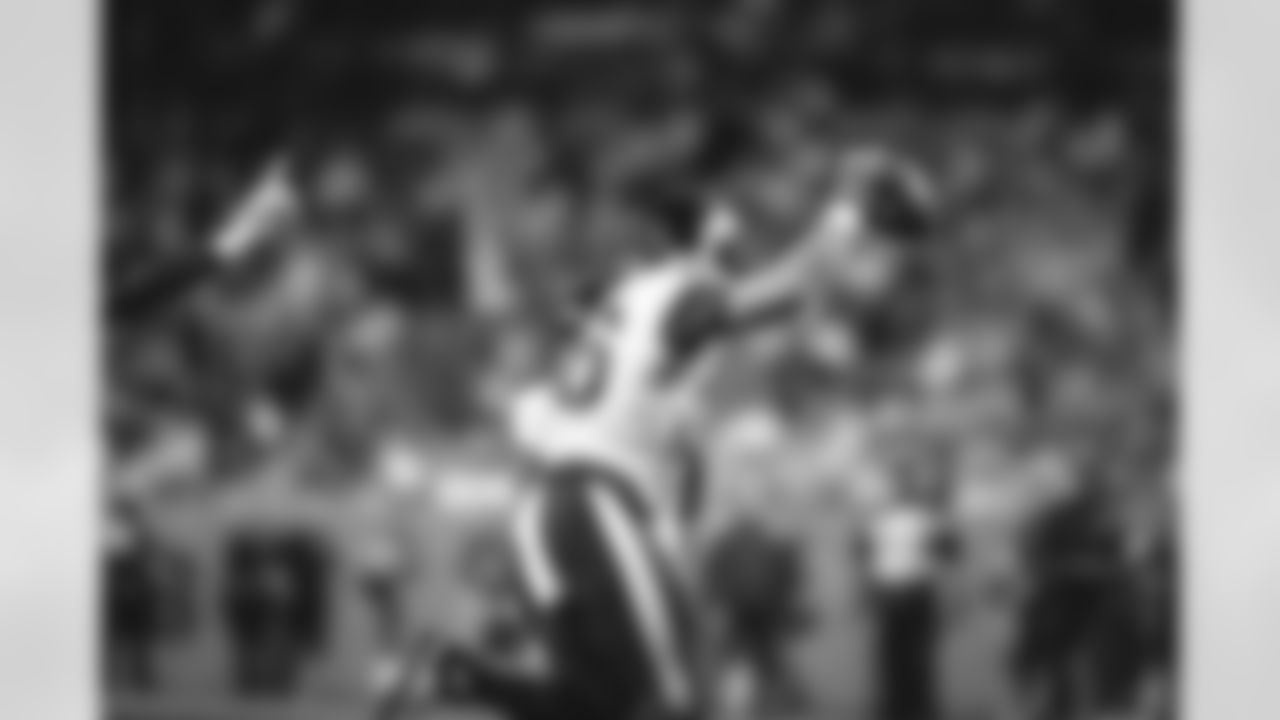
The Los Angeles Rams take on the Denver Broncos for the final preseason game of 2021.
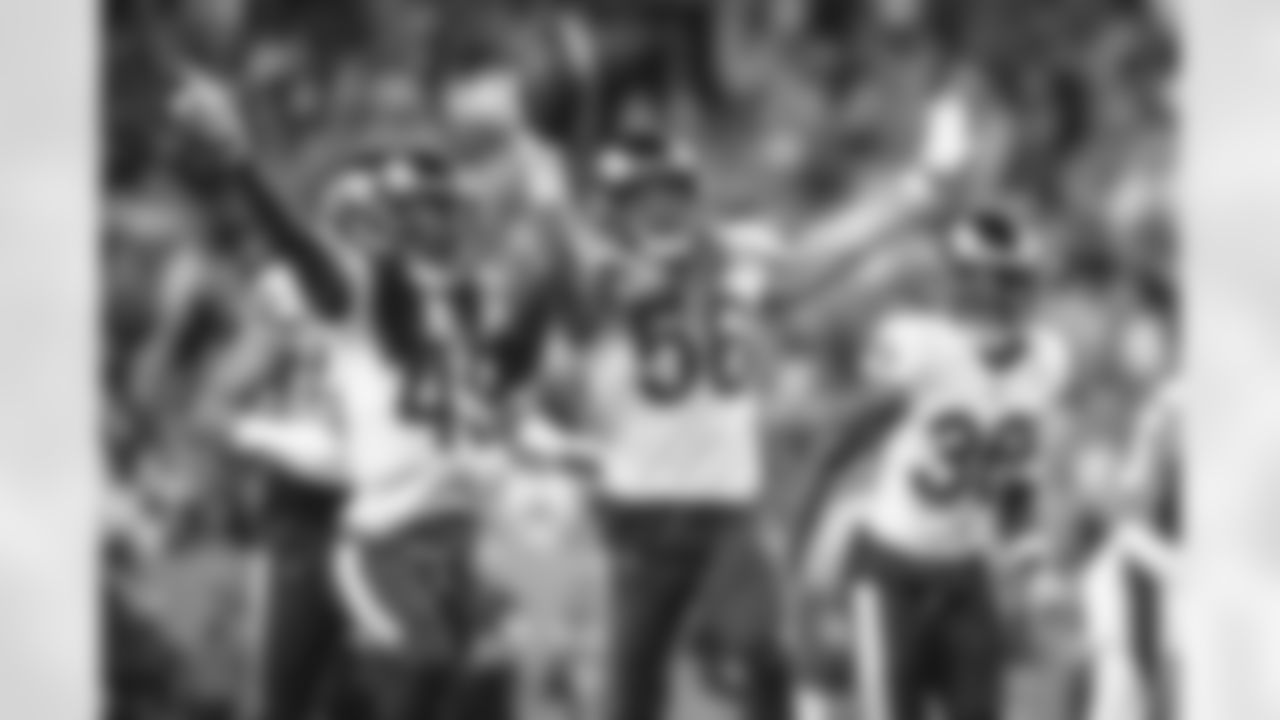
The Los Angeles Rams take on the Denver Broncos for the final preseason game of 2021.
"I think, really, the first one, you're disappointed because after an efficient run on first down, then you probably should've run it again, especially when you get a three-man rush and a loaded zone kind of look behind that — that leads to a turnover. You just want to make sure, 'Alright, are you doing things that put our guys in good spots?'" McVay said. "Later on, then when we didn't punch it in from the one right there — that's something that we can learn from in terms of they played a little bit different defensive structure than what they had shown.
"But I thought our players did a really good job after those first two, getting four conversions in a row where you end up going 4-for-6 [in red-zone efficiency]," McVay continued. "The goal is to always come away with points most importantly, but prefer touchdowns."
And when it comes to play calling, McVay said his biggest emphasis is continued learning.
"One of the things that I'm not afraid to admit is that this is only the fourth year that I've done it," McVay said, referring to how long he's called plays in the NFL. "By no means do I have all the answers or the solutions. You try to look at yourself critically. And that really goes for all of us as coaches in figuring out, 'Alright, are we making decisions' — and it's not so much the result as much as, 'Alright, was this in alignment with what we think is best?' If it works out — and sometimes there's a lot of situations, more times than not, where I get lucky because the players end up bailing you out.
"So, that's where some of those situations as far as remaining patient, are we getting good removal in the run game? And if that's the case then you want to be aware of that, but you also want to have that unpredictable element as well."
As McVay continues to gain experience, he figures he'll improve.
"If there's one thing that I've learned is if you try to learn from your mistakes and make sure that you put those things in the memory bank, that's really valuable," McVay said. "I think that's one of the things that's been as humbling and as eye opening as anything else. You always sit back and you hope to be able to get a chance to call plays and, 'Oh yeah, you can do it,' or whatever and then when you actually get into that role, it's a little bit more humbling than what you thought. You've got to make sure that you're adjusting — you're able to adapt."



